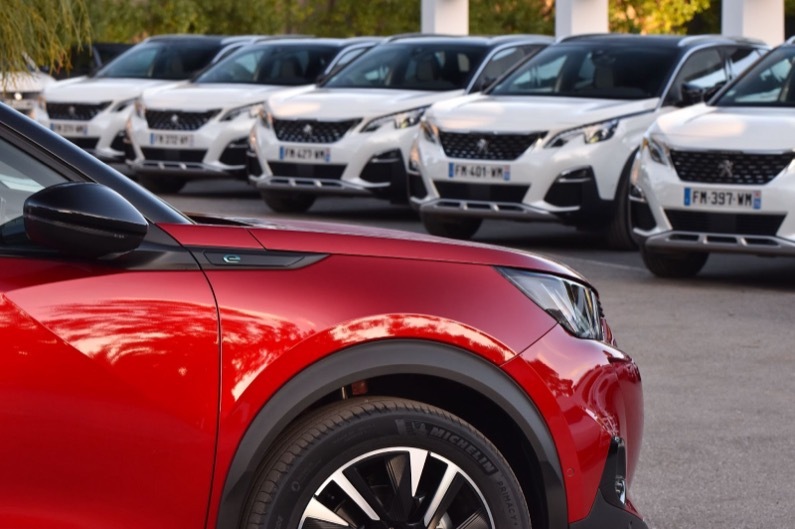Understanding Fleet Auto Insurance: Safeguarding Your Business Vehicles

A business with multiple vehicles requires a comprehensive insurance policy that effectively protects its assets.
Hence, understanding various aspects of fleet auto insurance is crucial for any business owner.
This guide provides insights into commercial auto fleet insurance, enabling you to make an informed decision.
What is Fleet Auto Insurance?
Fleet insurance is a consolidated policy that insures multiple vehicles owned by a single business. Businesses with two or more vehicles can opt for this instead of individual policies. Fleet insurance offers a streamlined administrative experience and may provide cost benefits.
How Does Fleet Insurance Work?
When a company opts for fleet insurance, all the company's vehicles are listed under a single policy. The policy can be tailored to cover various risks the vehicles might encounter, including theft, fire, and accidents.
Claims are made similarly to individual auto insurance, although the process often proves simpler due to having a single point of contact.
Why Do You Need Insurance for a Fleet?
Businesses need fleet insurance to protect themselves from financial losses when accidents or damages occur to multiple vehicles simultaneously.
Moreover, having fleet insurance can streamline administrative processes, as all vehicles are linked to one policy.
What Does Fleet Insurance Cover?
Fleet insurance coverage often includes liability for injuries or damages caused by company vehicles and comprehensive coverage for damages outside of collisions. It also provides collision coverage for damages from accidents, and coverage for uninsured/underinsured motorist incidents.
However, the coverage varies based on the insurer's and policyholders' specific agreement.

What Are the Benefits of Fleet Insurance?
Before diving into the specifics, it is essential to understand the numerous advantages fleet insurance provides. From streamlined administrative processes to flexible coverage options, fleet insurance has several potential benefits for businesses.
Simplicity and Efficiency
Fleet insurance simplifies the process of managing multiple vehicles. Instead of juggling numerous individual policies, businesses can consolidate their coverage into one policy. This means reduced paperwork, a single renewal date, and a point of contact, making the process more efficient and less time-consuming.
Affordability
Economies of scale can work in your favor with fleet insurance. Insurers often offer discounts for insuring multiple vehicles under a single policy, making fleet insurance more affordable than individual auto policies.
Flexibility
Another perk of fleet insurance is its flexibility. Businesses can customize policies to match their specific needs, offering a mix of coverage for different kinds of vehicles and drivers.
Inclusivity
Fleet insurance isn't just for cars; it can cover a range of vehicle types, from trucks and vans to motorcycles, all under one policy. It allows businesses to have a comprehensive policy for all their vehicles, irrespective of type and model.
Who is Eligible for Fleet Insurance?
Any business entity that owns multiple vehicles used for business purposes can avail of fleet insurance. This insurance is suitable for corporations, partnerships, sole proprietors, and even non-profit organizations that maintain a fleet of vehicles.
How Much Does Fleet Insurance Cost?
The cost of fleet insurance varies depending on several factors, such as the number and type of vehicles, intended use, the geographical area of operation, and the driving records of operators. Each insurer has its methodology for calculating premiums, so it's advised to shop around for the best rates.

Cutting the Cost of Fleet Insurance
While fleet insurance is necessary, businesses don't have to accept high costs without question. There are various strategies to reduce the cost of fleet insurance.
Telematics
By installing telematics systems in vehicles, businesses can monitor driving habits and reduce potential risks, leading to lower premiums. Telematics systems provide data on vehicle usage, driving behaviors, and operational efficiency, all of which help businesses manage their fleets more effectively.
Identify Areas for Driver Improvement
Driver behavior is a significant factor in insurance costs. Identifying bad habits can lead to accidents and higher premiums is essential. Driver training programs can be useful in improving driver behavior, ultimately lowering the cost of insurance.
Invest in Fleet Dash Cameras
Dash cameras can provide evidence in an accident, protecting your fleet from unjustified claims. These can significantly reduce insurance costs by providing factual data about incidents.
Choosing the Right Insurer
Before committing to a fleet insurance policy, conducting thorough research is crucial to choosing the right insurer for your business. Look for companies with positive customer reviews, financial solid stability, responsive customer service, and competitive pricing.
Managing a Fleet Insurance Policy
Managing a fleet insurance policy involves several aspects, which can be seamless with understanding payment, renewals, and adjustments for additional coverages.
Payments
Early discussions about the payment plans available can save your business from future hassle. Options might include monthly installments, quarterly or annual lump sums, etc. Gauge what works best for your business's cash flow.
Renewals
Mark the renewal date on your business calendar to give yourself ample time to reassess your coverage needs, compare quotations, and negotiate terms. Remember, loyalty should not lead to complacency. Always ensure you're getting the best deal.
Additional Coverage
As businesses evolve, so too do their insurance needs. Regularly assess if additional coverage is required. It could be due to adding new vehicles or for enhanced protection like legal cover or breakdown assistance.

What’s the Alternative to Fleet Insurance?
An alternative to fleet insurance is individual vehicle policies for every car in your fleet. These can be appropriate for smaller businesses with a limited number of vehicles or specific requirements not catered to by fleet policies. However, they come with challenges like varied renewal dates and more significant administrative burdens.
Ensure That You Are Protected
Finding an efficient, comprehensive insurance solution is a must for businesses with multiple vehicles. That's why we specialize in providing auto insurance for company fleets as part of our business insurance offerings at Hotchkiss Insurance, one of the leading insurance agencies in Texas.
Our tailored coverage solutions and outstanding client service make us an excellent choice for businesses seeking to protect their fleet, giving them more time to focus on what they do best.